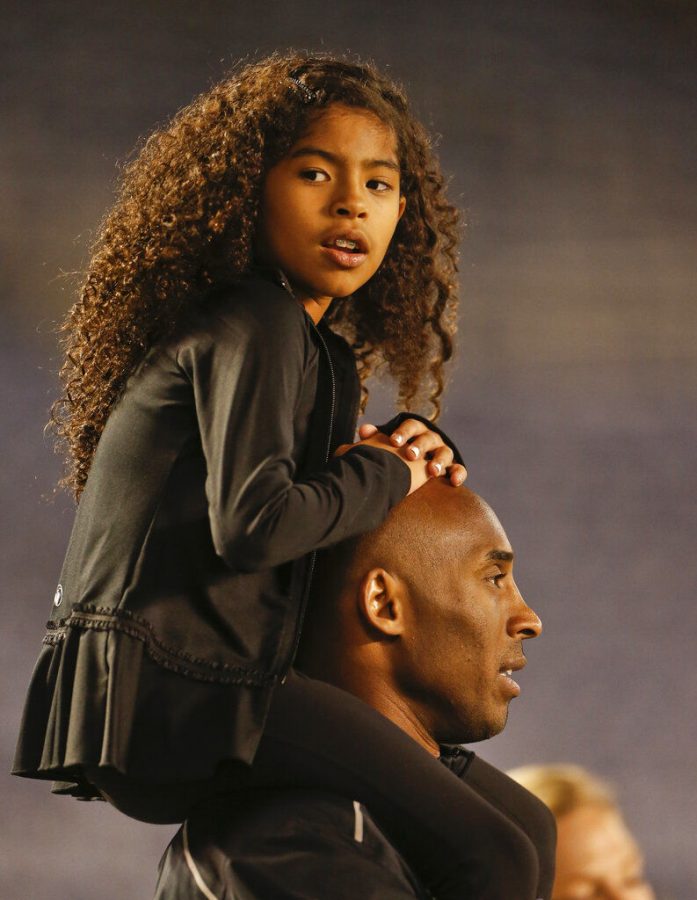Kobe Bryant’s death reminds us all what really matters
January 30, 2020
DeKALB — It was nearly two years ago that I was sitting in my dorm room when I first experienced one of those calls that changes your life forever.
My mom told me that my uncle had suddenly died of a heart attack.
I spent the next week flying out to Baltimore, being with family, helping my uncle’s family figure out what would come next and, in general, trying to be as supportive as I could before flying back home. My uncle’s brother, my dad, only came close to breaking down in front of me one time.
This past December I sat with my father watching the pre-game show to the Sugar Bowl when they broke the news that Louisiana State University offensive coordinator Steve Ensminger’s daughter-in-law, Carley McCord had died in a helicopter crash.
I made a snide but ultimately correct prediction about how ESPN will probably cut him a billion times to see if they catch him having a breakdown for the world to see in his time of grieving. I expected a response from my father, but when I looked over I saw my father wiping tears from his eyes.
In that moment I imagine my dad reflected on the loss of his brother and, in having both of his sons home, losing them as well.
My dad is the first person I thought of when I learned that Kobe Bryant, his daughter Gigi, and seven others died in a helicopter crash Sunday. I thought about how suddenness of a tragedy must ache, losing a son, daughter, mother or father.
The past few days have been filled with discussion about Kobe and what he meant to athletes, sports fans and people who generally saw him engraved in pop culture.
I saw friends talk about getting to shake Kobe’s hand or take a picture with him and marveled at how a small interaction and gesture from Kobe could be something that people who idolized him could hold onto for life.
For athletes, he was the gold standard for work ethic, intensity and killer instinct. It’s not just those who came after peak-Kobe that have said he changed how they approach the game but those who have played against or with him before he ever became what he would be.
Putting a cap on my thoughts on Kobe seems impossible. Every thought about his passing sprouts 10 new ones. Every conversation about him goes from a minute to nearly an hour.
A major part of what makes this passing so tragic is the rarity of young deaths to NBA legends. The two sports I follow the most are American football and pro wrestling, and as tragic as young deaths are in those sports they come at such a rate that they bounce off of people like pebbles off the side of a mountain.
Magic Johnson, a player Kobe idolized, is alive at 60. Larry Bird is 63, Kareem Abdul-Jabbar is 72 and Bill Russell will turn 86 next month.
All of them have gotten to see their impact on the game, see how the game changed, and be appreciated for their meaning to basketball long after they retired. Kobe Bryant, who retired just three years ago, will not.
I don’t think I’m sad because Kobe died, I never had a true connection with him beyond watching him as a kid. I’m sad about what Kobe left behind.
Kobe left players he was mentoring to carry his legacy, kids who were inspired to work harder for they loved and people learning from him that they can be better than their mistakes and transgressions. Most importantly, he left behind a wife, friends, and three daughters he absolutely loved.
It made me think about what I would leave behind if I died. What I would do without my mentors, my inspirations, my family and friends.
It’s a scary, crushing feeling of inevitability that we can’t put a timestamp on. That’s why we all rushed to call loved ones on Sunday afternoon.
The best way people can pay tribute to Kobe is by keeping his spirit alive in how we live without him. Work hard, inspire others, dedicate yourself to what matters to you. Most importantly, appreciate the people you have here now in the moment.







